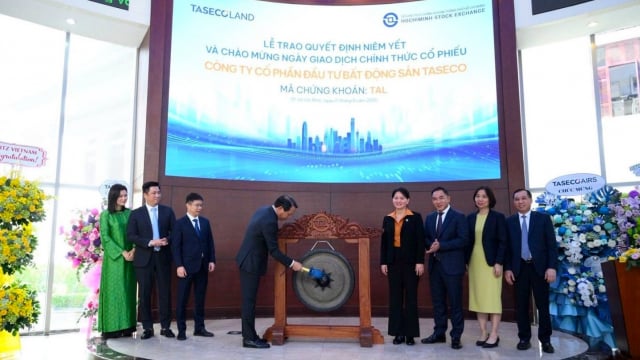Business
CFOs remain cautiously optimistic, prioritizing revenue growth amid economic risks
Chief financial officers (CFO) in Southeast Asia are setting their sights on revenue growth to ensure resilience and maintain expansion through economic cycles.
A Deloitte survey of 190 CFOs, coupled with in-depth interviews with 11 CFOs across Southeast Asia, provides a clear picture of the strategic priorities of financial leaders for 2025.

Revenue growth takes center stage
Despite economic risks such as recession, inflation, and high interest rates, most CFOs maintain a neutral to cautiously optimistic outlook on financial prospects. According to the survey, 82 per cent of CFOs consider revenue growth their top strategic priority, surpassing cost control and financial efficiency optimization.
Ho Kok Yong, leader of Deloitte’s CFO program for Asia-Pacific and Southeast Asia, notes that CFOs in the region have adapted to ongoing economic and political volatility and are shifting their focus toward sustainable growth.
To support businesses in this uncertain environment, CFOs are adjusting capital allocation strategies and enhancing investment portfolio oversight. More than half of the CFOs surveyed evaluate portfolio performance at least twice a year.
Additionally, mergers and acquisitions (M&A) activity has significantly increased, with over a quarter of CFOs reporting that their companies have completed at least one M&A transaction in the past three years. Nearly half of CFOs expect M&A activity to continue rising in the near future.
According to Yong, for CFOs in Southeast Asia to drive lean operations and navigate growth effectively, they must lead the way in fostering a “ready-to-act” mindset—continuously assessing their investment portfolios to ensure alignment with overall strategic objectives. If misalignment occurs, they need the flexibility to divest or collaborate to create new value.
Deloitte’s leadership underscores that today’s dynamic and volatile business environment demands two key capabilities: resilience, to protect core business foundations, and breakthrough growth, to accelerate value creation.
“Therefore, the priority for CFOs in Southeast Asia is to diversify and enhance revenue streams so their organizations can withstand economic fluctuations and continue growing through both expansion and downturn cycles,” Yong adds.
AI expectations
CFOs in Southeast Asia expect digital technology and automation to play a greater role in financial operations. More than half plan to integrate more automation technologies into their workflows, while over one-third anticipate increasing investments in technology next year.
Many companies have established AI research centers or dedicated teams to experiment with the technology. However, most are still in the early stages, focusing on low-risk applications to automate portions of manual tasks.
According to Deloitte, the biggest challenges CFOs face in AI investment include difficulty quantifying benefits, assessing implementation risks, and addressing privacy and security concerns.
From a financial perspective, human capital and trust are crucial factors. CFOs worry about their teams' AI proficiency, corporate culture, and readiness to embrace new technology.
This suggests that while AI offers tremendous potential, the combination of technology and human judgment remains key to its reliable implementation.
Moreover, developing employees' skills and competencies in AI should be a future priority - not just to use AI tools effectively but also to identify, evaluate, and manage associated risks.

Balancing ESG and financial goals
Although CFOs recognize the importance of environmental, social, and governance (ESG) factors, fewer than 25 per cent have fully integrated ESG into their operational models. Most businesses remain in the exploratory or pilot phases.
The biggest barriers to ESG implementation include resource constraints, workforce capability, and challenges in measuring impact. CFOs, in particular, face the challenge of balancing ESG compliance costs with financial performance. This is especially evident in procurement, where ESG-aligned sourcing strategies tend to be costlier and require offsetting through other cost-optimization initiatives.
Currently, CFOs are focusing on three key actions: assessing ESG risks, reporting ESG initiatives to stakeholders, and establishing ESG performance metrics. However, only a small number have adjusted capital allocation strategies to align with ESG principles.
According to Yong, ESG and long-term financial success are not mutually exclusive. However, in the short term, CFOs still face challenges in balancing these two objectives. He also cautions that an excessive focus on short-term financial metrics could undermine long-term financial resilience.
Amidst a rapidly changing business landscape, CFOs in Southeast Asia must not only enhance resilience but also pursue breakthrough growth. This requires agile thinking, leveraging technology, and striking a careful balance between financial priorities and ESG commitments to ensure sustainable development.
Mcredit stumbles as rivals surge ahead in consumer finance boom
Samsung Vietnam appoints its first Vietnamese senior executive
Samsung Vietnam appoints Nguyen Hoang Giang to SEVT senior leadership, the first Vietnamese executive in the company’s local manufacturing units.
Michelin leads the smart mobility revolution with data and AI
Michelin is undergoing a strong transformation by applying AI and smart analytic, helping lead the smart, safe, and sustainable mobility revolution in the Industry 4.0 era.
LG Innotek secures $200 million IFC loan following revenue drop
LG Innotek Vietnam Hai Phong secured a $200 million IFC loan as revenue slows, aiming to expand camera module production while meeting sustainability targets.
Leading with empathy in Vietnam’s billion-dollar investment flows
For Koen Soenens, Sales and Marketing Director at DEEP C, empathy is a compass that guides major deals, the way a leader builds a team, and the ambition to create a sustainable industrial zone that carries a Vietnamese identity.
Taseco Land’s new logo marks a new growth trajectory
Taseco Land has shifted its listing to HOSE and introduced a new upward-pointing arrow logo - a visual statement of its strategy to raise capital, expand its land bank, and strengthen its standing in Vietnam’s real estate sector
SAP positions Vietnam as key R&D hub with €150 million investment
Located in the heart of Ho Chi Minh City, SAP Labs Vietnam is the second SAP Labs Network hub in Southeast Asia, following Singapore and is one of 20 countries that have SAP Labs globally.































![[Hỏi đáp] Bỏ thuế khoán từ 2026: Hộ kinh doanh có cần thuê kế toán?](https://t.ex-cdn.com/theleader.vn/192w/files/news/2025/12/03/ho-kinh-doanh-1120.jpg)





![[Hỏi đáp] Từ thời điểm nào hộ kinh doanh không được nộp thuế khoán nữa?](https://t.ex-cdn.com/theleader.vn/192w/files/news/2025/12/03/ho-kinh-doanh-0107.jpg)
![[Hỏi đáp] Bỏ thuế khoán: Hộ kinh doanh sẽ nộp thuế như thế nào?](https://t.ex-cdn.com/theleader.vn/320w/files/news/2025/12/03/bo-thue-khoan-0116.jpg)
![[Hỏi đáp] Hộ kinh doanh bị phạt thế nào nếu kê khai sai?](https://t.ex-cdn.com/theleader.vn/192w/files/news/2025/12/03/phat-ke-khai-thue-0122.jpg)



